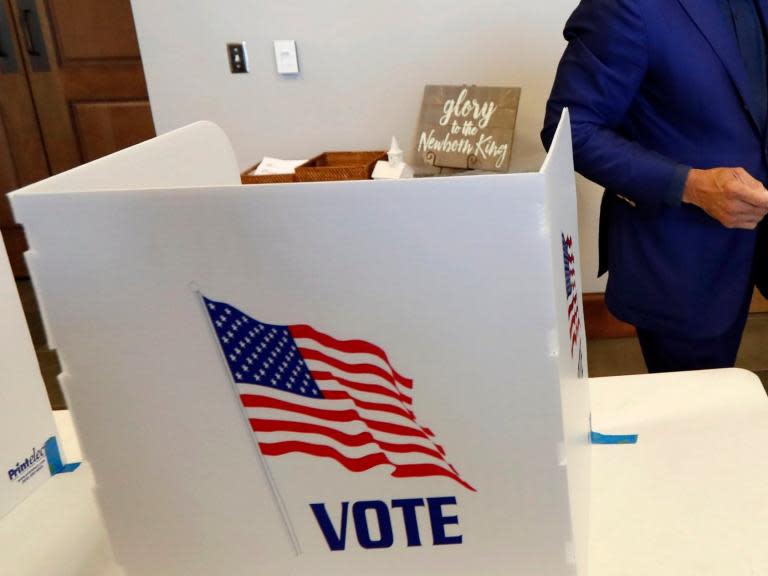Florida Republicans push ahead with bill to ‘undermine voters' who approved restoring voting rights to ex-felons
Republicans in the Florida state legislature are moving forward with a bill that critics say would effectively undermine Amendment 4, a voter-approved measure that was meant to restore voting rights to more than a million ex-felons in the state.
A new version of that amendment was approved in the Florida House on Wednesday night, and would require ex-felons to pay court fines, fees, and restitution before they can have their right to vote restored — even though amendment approved by voters makes no mention of those concerns.
Critics of the effort in the House — and a separate, less punitive version in the state Senate — charge that the financial requirements could effectively strip the right to vote from hundreds of thousands of poor ex-felons, and amounts to an attempt by Republicans in the Florida legislature to undermine will of the very citizens who voted them into office.
“I think it’s a shame that the folks that were elected by voters in Florida — the same voters who approved Amendment 4 — are now trying to use their powers as legislators to try to limit that amendment that was approved by a tremendous majority of the state,” Sean Morales-Doyle, counsel with the Brennan Centre's Voting Rights and Elections team, told The Independent.
Amendment 4 was approved in November with nearly 65 per cent of the vote in Florida — and more than a million votes more cast to approve the measure than were cast for any single candidate in any other race in the state.
The amendment was pushed for by activists across the state, who noted that roughly 1.4 million ex-felons were essentially being barred from participating in a fundamental democratic process even after finishing court mandated sentencing. Excepts were made in the amendment for individuals convicted on murder or felony sexual assault charges.
Supporters of the effort say that the amendment was written to be self-implementing, but a Republicans in the state, including Governor Ron DeSantis, have pushed to have a say in the implementation anyhow.
While the amendment has already gone into effect — allowing thousands of former felons to register to vote in January on a tearful and optimistic day — that setback has not deterred those efforts to control the amendment’s implementation, and to implement what essentially amounts to a wealth requirement for ex-felons looking to vote.
Anna Eskamani, a Democratic state representative with an Orlando-area district, said that the new efforts in the state House essentially creates a two-tiered system that suppresses the vote of those without monetary means.
“This bill creates a rights restoration process that includes the requirement to pay all court fees and fines before a formally incarcerated person can have their rights restored,” Ms Eskamani said. “This creates a two-tier system for rights restoration based on wealth — it wasn’t what the voters wanted when they overwhelmingly supported Amendment 4 and I was proud to vote no.”
Neil Volz, the political director of the Florida Rights Restoration Coalition, which helped spearhead the effort to bring Amendment 4 to voters, decried the effort as a partisan attack on the will of the voters. But, he expressed optimism that legislatures could still alter their course.
The passage of this bill in the House “represented a failure to live up to the bipartisan commitment Florida voters showed with the passage of Amendment 4,” Mr Volz said in a statement. “We believe the Senate bill better reflects the spirit of Amendment 4 and hope that Republicans and Democrats can come together to produce a bipartisan bill that aligns with the will of Florida’s voters.”
The Florida House vote comes as a national dialogue about felony voter rights has been heating up, with Democrats in the 2020 presidential primary making clear their position on the issue. Among those have been Bernie Sanders, who has supported voting rights for some felons even while they are still in prison.
Mr Morales-Doylea said that he welcomes the dialogue that has been forming around the “patchwork” of laws seen across the US. But, he emphasised that the efforts in the Florida House would have real-life impacts beyond the ideological debate.
“I hope that the lawmakers in Florida remember who put them there, and it's the same people that decided they wanted Amendment 4 in November,” he said.

 Yahoo News
Yahoo News 

